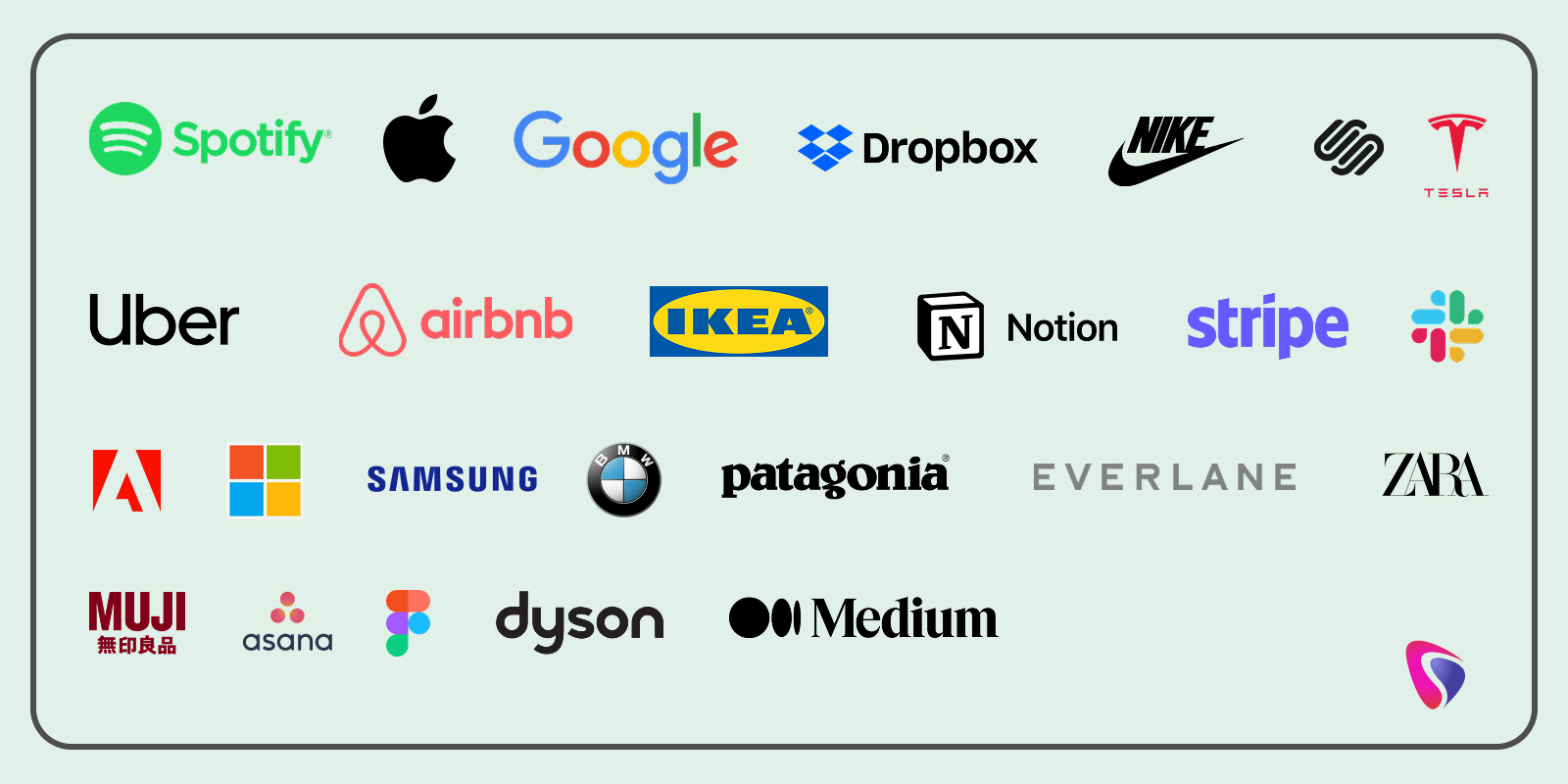
Starting a business is difficult. There are plenty of challenges, but an entrepreneur must think of a name before starting a business. 77% of people refer to products by their brand names. A company with an unforgettable name tends to linger in people’s minds. With every new product launch or advertisement (on television or in between movies), a strong brand name creates a massive impact.
Google was first known as BackRub but changed its name in 1997. Can you imagine someone referring to a search engine as BackRub? Brands such as Coca-Cola, Nike, Starbucks, Volkswagen, and IBM are famous today. Yes, they make good products, but the credit must also go to the catchy names they came up with for their companies.
Business name generators can help you come up with ideas. However, we must understand that these tools do not consider the company vision, target audience, and cultural factors. If you observe closely, many of the names are not original, and they may already be taken. Given these challenges, how does a company choose a business name? This blog focuses on tips for choosing business names, types of business names, common mistakes, and more. Let’s get started.
Top 10 Tips to Choose a Business Name in 2026
Choosing a business name has never been easy. A company owner may come up with a business name that he thinks is catchy and meaningful. With that being said, choosing the wrong business name can make the business a laughing stock or even be ignored by all. We will share a few tips that companies can use to choose the right names for their businesses.
1. Start With Strategic Brainstorming
Do not rush to find the ideal name for your business. There is no best name for a company. With ever-changing trends, business demands, and other factors, naming a business can get complicated. Get clarity by pondering along the lines below.
- Mission - What does the company do?
- Personality - Describe the company's personality. Is it playful, conservative, professional, or futuristic?
- Audience - Who do you want to target? Who are your potential buyers?
- Emotions - What emotion do you want people to feel when they hear your brand name?
Based on the above points in mind, start brainstorming. Use tools such as the ones below.
- Name Generators - Use online business name generators like Shopify, Namelix, Canva, GoDaddy, Logo, and others.
- Thesaurus and Language Tools - Valuable for finding related words.
- Mind Maps - Visual brainstorming tool to connect ideas and see how they fit into the larger picture.
Trying to find the perfect name from the word go is not the right strategy. Think of as many names as possible. Once you have 100 to 200 names, think of different combinations and choose the ones that you think are the best names.
2. Competitor Research
Analyze what your competitors do. What names do they have? Don’t limit yourself to local companies. Think from a global perspective, but do not ignore cultural factors. Ask yourself questions like the following-
- What is your competitor’s brand tone? Is it clever, witty, minimalist, or descriptive?
- Do you notice any patterns? For example, IT companies that end with Solutions, Infosystems, or Technologies.
- What do you think will work for your company?
- What is overused, ineffective, or unoriginal?
Pro Tip - Don’t become a sheep in the herd. Identify the gaps, think of what you can do better, and be innovative. Use industry trends as a guiding force and not as a copy-paste template.
3. Use Wordplay and Mashups
Cleverly used words can have a huge impact on people’s minds. It can invoke joy, laughter, curiosity, and other emotions. Examples of wordplay include the following-
- Puns - Tandoori Nights for an Indian restaurant.
- Alliteration - Pampered Pussycats for a pet care center.
- Portemanteaus - Netflix (internet and flicks), Grubhub (food delivery hub). These are examples of words formed by combining two or more words.
- Foreign Words - Use foreign words carefully. Research and understand their meaning and what they mean in a language. Examples include Masala House, Pad Thai, etc.
Words related to a particular language or culture can draw a specific segment of the population.
4. Emotional or Audience Relevance
A sales-focused approach will not work in 2026. People engage with businesses that connect with them on an emotional level. Many companies focus on their products only without considering customer sentiments. Ask yourself what emotion you want to invoke when people hear your business name.
Examples of business names with an emotional connect-
- Loop & Leaf - Regeneration and eco-friendliness
- Golden Ledger - Trust and Wealth Management.
- Coursera - Educational courses and modern learning.
- Wildstride - Adventurous trekking through the wilderness.
When deciding on a company name, use language that resonates with the brand’s emotional promise (be it adventure, futuristic, youth, rebellion, or serenity).
5. Scalability and Future-Readiness
Avoid names that may create roadblocks to growth and expansion. For example:
- Parisian Pancakes - Limits the business geographically and vertically.
- Sunita’s Accounting - Even if this business scales, people will think of it as a small company where a sole woman handles the operations.
Before choosing such names for your business, ask yourself the following questions-
- Will this business name make sense in the next 10 years?
- Does this name restrict me to a particular location or niche?
- Does this name tie me to a specific product, trend, or industry?
- Can I enter international markets with this business name?
- Does this name limit my audience or leave out potential customers?
Besides being creative and unique, the name should enable future growth, not limit it.
6. Aim for Simplicity & Clarity
A business name should be creative, but it should not come at the cost of clarity. Business names that are hard to pronounce, spell, or understand are a flat-out no. Check for the following-
- Readability - Does it make sense at first glance?
- Pronunciation - Can people pronounce the name after hearing it?
- Recall Value - Will people remember the name a few days from now?
Pro Tip - Avoid hyphens, special characters, foreign languages, and anything that adds unnecessary complexity. If people ask you to repeat your name or spell it out on the phone, it's a sign that you must change it.
7. Master the Art of Storytelling
Strong brand names are often deep and meaningful. These names tell a story about the company’s journey, the owner’s struggles, or their origins. Examples of such business names include the following-
- Tesla - Named after Nikola Tesla. Signifies innovation and futuristic vision in the scientific world.
- FujiFilm - Mentions Mount Fuji.symbolizes Japanese precision and resilience.
- Blue Apron - Denotes French chefs undergoing training. The name symbolizes learning and craftsmanship.
Business names with cultural connections are great, but they should resonate with different audiences. Otherwise, it may create hurdles in growth.
8. Use Acronyms Carefully
Abbreviations are great; they can sound catchy and modern at the same time. However, if they are illogical, unpronounceable, and forgettable, it defeats the purpose. Examples of good acronyms include the following-
- NASA - This name is catchy and stays in people’s memories for a long time.
- IBM - Conveys professionalism and trust.
The trick is to avoid lumping together a bunch of letters that look like a license plate, like JBKC 2348. The acronym should be meaningful, and it should not have negative connotations.
9. Check Digital and Legal Availability
Suppose you like the business name, and you have even thought of a domain name. It is time to ask yourself some questions.
- Is the domain name available?
- Can you create a social media handle using the name?
- Is the name taken by someone else?
- Would the name be culturally appropriate in your target market?
Use tools like NameScan, GoDaddy, or WIPO’s global database to find out if your domain name is available and not taken by another company. This step will help you save time, money, and legal troubles.
10. Real-World Testing
Once you shortlist 8 to 10 names, get feedback for the same. Relying on friends and family alone may not be the right strategy. They may not have enough knowledge of how things work in the business world. Talk to business owners, industry people, and other professionals who can give you an honest, unbiased answer. Ask the following questions:
- What does this name remind you of?
- Is the name easy to spell?
- Can you remember the name after a few days?
Consider running A/B tests on landing pages or social media ads to determine which names get the most engagement.
8 Common Mistakes to Avoid While Choosing a Business Name
In the above section, we explored the most important tips to help companies choose the best business name. Below are some common mistakes that companies should avoid while choosing a business name.
1. Ditch the Generic Names
If you want to stand out in the business world, avoid business names like Best IT Solutions or Bilal Global Enterprises. There are millions of companies with such unoriginal and boring names. Firstly, such names fail to stand out from the competition, making it hard for customers to remember them. Most importantly, these names don’t tell a story or explain why the brand is special.
2. Domain and Social Media Handle Availability
In 2026, the business and its social media handles must be the same or somewhat similar. Businesses with names that don’t match their social media handles will be at a disadvantage. Customers can’t find them easily. If you’re a company, check the domain name and social media handle availability. If you post on multiple social media platforms like Instagram, X, Facebook, or others, choose a name that works on all of them.
3. Ignoring Trademark Conflicts
Every company must have a unique name that is protectable and does not clash with existing business names. Choosing a business name without checking for trademark conflicts can result in lawsuits or legal fines. Later, you will be compelled to change your business name. Does it make sense to go through all this anguish? Instead, a company must check with the trademark registry in its jurisdiction, along with a global database, and choose a business name.
4. Neglecting Emotional Aspects
Some business names may have different meanings in other cultures. However, if your business wants to appeal to a global audience, the name should be appropriate. Besides resonating with the target audience, the name should be sensitive to other cultures without hurting people’s sentiments.
5. Too Trend-Focused
Trends come and go. These trends include new slang, colors, or phrases that may be cool now. Over time, these trends will become outdated and appear silly to people. For example, a business name like Bussin Burritos may sound trendy in 2026. Ten years down the line, the name will no longer be relevant.
6. Skipping the Audience Test
A name that does not connect with the audience is a total failure. A name based on the family, favorite color, or fruit may be emotionally relevant for the owner but not for potential customers. Talk to potential customers, business partners, mentors, or conduct surveys to see if the name clicks with the masses.
7. Not Considering SEO and Voice Search
Most people won’t bother typing in to find their favorite product. SEO is important, but it has evolved over the past few years. Whether it's search engines or voice assistants, they consider the authenticity and originality of the name. If your business name is confusing or irrelevant, search engines and AI voice assistants will not rank your business.
8. Blindly Copying Competitors
Copying your competitor’s business name just because it’s popular is a bad idea. The rival company has built its business over the years with hard work and innovation. Merely copying the business name is a sign of unoriginality and laziness. Besides, it can confuse customers and even create legal issues. Create a name for yourself instead of copying others.
Role of AI and Name Generators in Choosing Business Names
AI has evolved greatly, and it has entered the name generator domain. Many businesses use these AI tools to come up with new business names. What is so special about AI name generators? These AI generators use data-powered insights and creative words to generate business names for startups and rebranding projects. How do they help? What are their limitations and best practices? Let’s find out.
- Faster Brainstorming
AI tools can generate thousands of business names based on preferences, current trends, tone, keywords, and other parameters. They can think faster than humans and provide a variety of names that one could ever imagine. Apart from the thousands of combinations and variants, the AI tool can think from a new perspective.
- Data-Powered Creativity
Many AI tools analyze trending words and meaningful connections between ideas, concepts, and humans, along with user preferences. This analysis helps it generate relevant names and those that align with customer preferences.
- Domain and Social Media Availability
Many modern AI tools check if the name is available on different domains such as www, ooo, io, and others. At the same time, these tools check for social media handle availability on platforms such as Facebook and Instagram.
- Localization and Global Appeal
AI tools can also come up with names that are acceptable and consider cultural factors in other geographical regions. This check ensures that the business name does not get embroiled in controversies or offend anyone.
- Brand Voice Consistency
There is no compulsion for a business name to be similar to that of a competitor. That said, the name must align with the brand’s personality. Provide the necessary inputs, and the AI tool will generate funny, professional, friendly, or expressive names.
Focus on SEO, Voice Search, and Discoverability
We already touched on this point in one of the earlier sections. The right business name can secure excellent rankings on search engines and get recommendations in voice searches. We shall explore the benefits of choosing the right business name, best practices, and limitations.
3 Benefits of Choosing an SEO-Friendly Business Name
Below are the benefits of choosing an SEO-friendly business name.
- Keyword-rich or SEO-friendly names usually rank higher on Google and other search engines.
- Business names that are clear and easy to pronounce get greater recommendations in voice-powered searches.
- Simple and meaningful names are less likely to be misspelled by people, especially on smartphones that have smaller screens. This ensures faster searches and higher visibility.
4 Limitations of an SEO-Focused Approach
An SEO-focused approach has its benefits, but it has some limitations. They are as follows-
- Excessive focus on SEO optimization without ensuring originality results in generic names that people won’t remember. Nor will the brand's popularity grow over time.
- Search trends change continuously. An SEO-focused business name based on a trend will fade over time.
- Some names may be trending, but long and hard to understand. Voice assistants may misunderstand such words in voice searches.
- An SEO-optimized business name does not guarantee success. Discoverability on search engines and AI tools depends on content, reviews, backlinks, and website performance.
6 Best Practices for SEO, Voice-Search and Discoverability
Companies must follow the best practices below for SEO, voice search, and discoverability.
- Use relevant and SEO-friendly keywords, but ensure originality.
- Business names must be short, easy to remember, and pronounce.
- Use tools like Google Trends or Ubersuggest to check for top-searched keywords. Use these inputs to choose a business name.
- Talk to an AI voice assistant like Alexa and ask it about your business name. If the voice assistant cannot pronounce the name properly, consider changing it.
- Check for business names on popular domains and social media handles and make an informed decision.
- Whether it's your website, metadata, or blog content, everything should appear alongside your company offerings. This ensures that Google and users connect with your brand.
Business Name Testing - Why, Feedback Collection, and Further Actions
Testing your business name is important. Why does it matter? How can you collect feedback? What is the next course of action after feedback collection? Let's find out.
Why Does Business Name Testing Matter?
- Filtering out weak or confusing business names early on eliminates the need for expensive rebranding.
- Business testing reveals emotional and cultural reactions that humans may ignore.
- Highlight pronunciation or spelling errors that could hamper discoverability or generate negative publicity.
- Provides valuable suggestions for when choosing between business names gets tricky.
How to Collect Feedback for Business Name Selection?
Below are some ways to collect feedback for choosing a business name.
- Conduct surveys using tools Google Forms, Typeform, or SurveyMonkey. Ask the right questions related to business name clarity, recall value, and emotional connect.
- Ask for feedback on social platforms such as Instagram stories, X, LinkedIn polls, or Reddit threads.
- Pick 5 to 10 individuals who may be your potential customers. Explain your brand vision and product while asking for name suggestions.
- Create multiple versions of ads and landing pages with business names. Observe and analyze the names that get the most engagement.
- Watch people’s reactions and note their feedback after you utter your business name loudly. Are they confused? Do they mispronounce the name? What emotions do you see in them?
Actions to Take After Collecting Feedback
Below are some actions that companies must take after collecting feedback related to business names.
- Watch out for red flags. If many people pinpoint a particular issue, you must take notice and make the required changes.
- Use a weighted scoring system to rate each business name. Assess the name on parameters such as originality, recall value, emotional connection to name a few.
- If most of the names you finalized perform poorly, it is time for introspection. The solution lies in the feedback. Check for tone, spelling, and if it aligns with your business.
- The moment you find the best business name, waste no time and jump into action. Pick the right domain, register trademarks, and sign up for social media handles.
Wrap Up
There is no such thing as the perfect business name. Even if you think you have chosen the best name for your business, there will always be someone to criticize it. Rely on your instincts, consult experienced people, and learn from the mistakes of your competitors. Focus on your niche, your service offerings, while emphasizing creativity. At the same time, it is important not to get carried away and choose something that you may regret a few years later.
It is natural to spend considerable time choosing the right business name, especially in this age where social media is dominant. With the right business name, you can not only connect with customers but also get more out of your marketing efforts while boosting SEO visibility. In the midst of all this brainstorming to come up with original and unique names, companies often forget legal requirements. Ensure the availability of the business name and social handles for your business.
Choosing the right business name is not rocket science, but it requires business owners to adopt a practical and structured approach. Follow the tips mentioned above and avoid making common mistakes.
FAQs
1. Should I use industry-related keywords in my business name?
The decision to use industry-related keywords in the business name depends on the strategy. Keywords like consulting, legal solutions, or game developers. This strategy may make the business name more business-friendly while providing clarity. However, it may pose hurdles for expansion, new product launches, and future diversification. So, it makes sense to choose a brand name that is not limiting and brandable at the same time.
2. Can changing my business name down the line hurt my company in any way?
Changing the business name can have negative consequences for businesses. It will affect SEO rankings and online visibility, along with legal documentation and related hassles. Customers may not recognize you by the new business name. To avoid such issues, it is advisable to choose a name that considers future needs, won’t cause legal complications, and allows for future expansion/diversification.
3. How long should a business name be?
No law tells companies to limit their business names to a specific number of words or characters. Nevertheless, companies should choose company names that consist of one to three words or under 15 characters. Shorter names have more recall value; they fit easily on logos, banners, online ads, and videos. In addition to conciseness, business names must be clear and easy to read.
4. Does emotion play a role in a business name?
Business names with an emotional touch leave a long-lasting impression on most customers. Also, it triggers emotions in them. These emotions could be joy, curiosity, trust, or family values. Connecting with customers using these emotions allows companies to build loyalty and long-term relationships.
5. How do I ensure that my business name stays relevant for the future?
Below are some tips to ensure that your business name stays relevant for the future.
- Don’t focus only on trends. Choose timeless and meaningful concepts that make sense in the long run.
- Think long-term and choose names that don’t limit you. Choose names that support future growth and pivots.
- Use trends to check for word relevance and longevity.
- Pick a business name that is easy to pronounce, spell, and aligns with your business needs.
- Check domain and social media availability to ensure brand consistency.
- Test the business name by speaking to real users. Check if it appeals to their emotions and what they think about the business (its offerings and personality).
- Ask yourself - Will the brand name be relevant in the next 10 to 20 years?


















